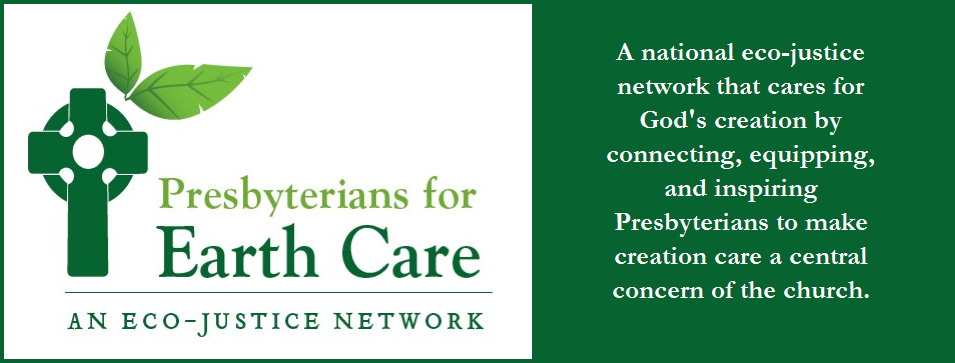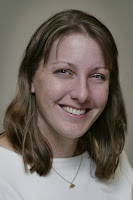Everybody needs beauty as well as bread, places to play in and
pray in, where nature may heal and give strength to body and soul – John Muir
Dear Friends,
Our souls are nourished by time spent in the wild untamed areas
of God’s creation. The wild powerfully reminds us that humans are just a
part of Creation and our wisdom is limited. Healthy wild lands not only support
biodiversity, they play an important role in mitigating greenhouse gases and
providing climate resiliency. Most of our nation's wild areas belong to
“we the people.”
America's public lands are held in trust for the common good.
Sadly, these lands - from recently created National Monuments such as Bears
Ears in Utah and Cascade-Siskiyou in Oregon, to proposed wilderness areas - are
under threat. Our Christian faith calls us to protect wild lands for many
reasons. The glory and wisdom of the Creator are revealed in special and
powerful ways in places where humans are only visitors, not the dominant force.
Ground zero for threats to public land is Utah, where the state
legislature is working to have federal lands returned to the state for
activities such as mining and drilling. Utah legislators are also working
to create new roads through environmentally sensitive and culturally important
public lands. Most of these lands are under the control of the Bureau of
Land Management (BLM).
For over three decades, citizens in Utah and throughout the US
have been working to protect Utah’s spectacular wild lands through a proposal
called the America’s Red Rock Wilderness Act. It would protect 9.2 million
acres of BLM lands in Utah for future generations. These proposed
wilderness areas surround some our nation’s most stunning national parks such
as Zion, Canyon-lands, Arches and Capitol Reef. Recently, there has been a push
to drill close to Zion National Park. A canyon with rich archeological
resources vulnerable to looting was just opened up to off-road vehicles. Groups
such as Southern Utah Wilderness Alliance (SUWA), Sierra Club and NRDC are
working hard to ensure these lands are protected.
On April 6, a House version of the America’s Red Rock Wilderness
Act bill was introduced by Rep. Alan Lowenthal (D-CA47) with 30 original
cosponsors. It may be introduced in the Senate as early as April 24 by Senator
Durbin (D-IL). PEC urges you to call your Senator to sign on as an
original co-sponsor or to urge them to sign on to the bill today. You may also use this on-line letter from SUWA.
Once the bill is introduced, please thank your senator if she or
he is an original co-sponsor. You can find the list of co-sponsors here (thanks to
SUWA).
Why not look at the House list and see if your representative is
one of the original cosponsors there? If they are, they love getting thank-you
calls—just call (202) 224-3121 to be patched through.
God’s wild lands are under great threat. One of the many
anti-public land bills under consideration in the 115th Congress
would undo the Antiquities Act that has allowed presidents to protect
ecologically and scientifically important lands and cultural treasures for over
110 years. Congress needs to hear that you want to keep public lands in public
hands for the common good and for God's glory.
Thank you for celebrating Earth Day by standing up for God’s
wild lands!
Sincerely,
Jenny Holmes
PEC Moderator, 2005-2011
You are the part-owner of 84 million protected acres of the
world’s most treasured landscapes in America’s 400 national parks, 670 million
acres of wild lands overall. Many Americans have worked since 1872 to
ensure that they are preserved for all the generations who follow. Remember,
this is your land! – Richard Orr, Outdoor Guide



 Amber Slate is a fourth year M. Div./M.A. student at Princeton Theological Seminary. Previously, she worked for five years at Sammamish Presbyterian Church where she was director of the middle school ministry. She grew up on a farm in Eastern Washington and wonders if one day she will get to be pastor of a church that would be excited about having goats.
Amber Slate is a fourth year M. Div./M.A. student at Princeton Theological Seminary. Previously, she worked for five years at Sammamish Presbyterian Church where she was director of the middle school ministry. She grew up on a farm in Eastern Washington and wonders if one day she will get to be pastor of a church that would be excited about having goats.
 Rev. Alonzo Johnson is Coordinator for the Self-Development of People Program (SDOP) of the Presbyterian Church (USA). Rev. Johnson has 25 years of experience in urban, youth, education, creative arts, and social justice ministries.
Rev. Alonzo Johnson is Coordinator for the Self-Development of People Program (SDOP) of the Presbyterian Church (USA). Rev. Johnson has 25 years of experience in urban, youth, education, creative arts, and social justice ministries.
 Dave Grace is an inquirer in the PC(USA) seeking to consult with Presbyteries and other denominational bodies on land-use planning to achieve conservation goals – M.Div & Master of Environmental Management ’17 Duke University
Dave Grace is an inquirer in the PC(USA) seeking to consult with Presbyteries and other denominational bodies on land-use planning to achieve conservation goals – M.Div & Master of Environmental Management ’17 Duke University

 Rev. Dr. Eva C. Foster
Rev. Dr. Eva C. Foster

 showing us true love in the dirt, in death and life fulfilled. I pray we always remember the ever approaching cycle that claims us all. I pray that we stay ever present, ever growing, and ever humbled in the presence of your love story to us. Jesus, creator, all mighty and perfect God.Thank you for calling us all to tend not only land but Relationships according to your will. We lift all this praise in your name. Amen.
showing us true love in the dirt, in death and life fulfilled. I pray we always remember the ever approaching cycle that claims us all. I pray that we stay ever present, ever growing, and ever humbled in the presence of your love story to us. Jesus, creator, all mighty and perfect God.Thank you for calling us all to tend not only land but Relationships according to your will. We lift all this praise in your name. Amen.


